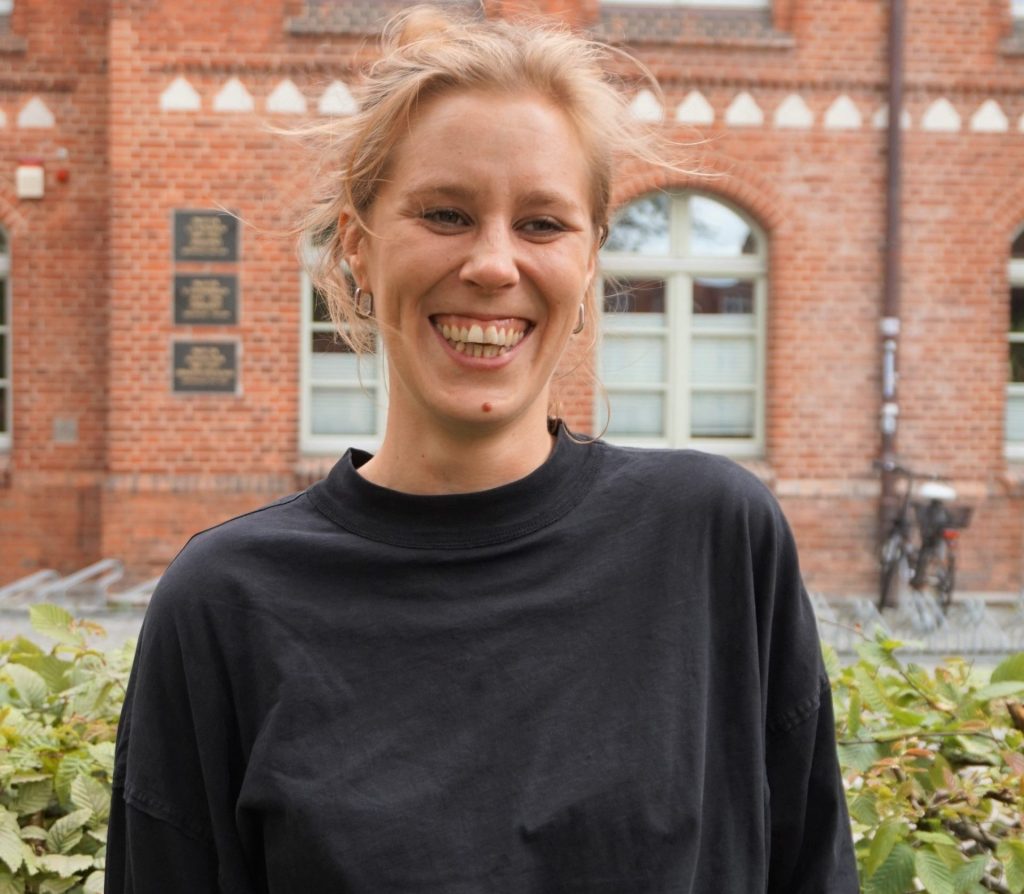I hold a degree in Political Science and History from the University of Greifswald. My research interests focus on the formation of political attitudes and identities, with a particular emphasis on how these attitudes are influenced by socioeconomic factors and socialization. Since April 2024, I have been part of the International Research Training Group “Baltic Peripeties.” In my PhD project, I analyse how individuals perceive and evaluate competing political narratives on what democracy is, how it should function, and whom it serves – and how these attitudes translate into (mis)trust in both democratic and non-democratic regimes.
Oksana Alekseev

University of Greifswald
IRTG Baltic Peripeties
Anklamer Str. 20
17489 Greifswald
Germany
Room: 0.10
+49 3834 420 3583
oksana.alekseev[at]uni-greifswald.de
Chair of Political Sociology and Methods of Political Science
Democracy in Competing Stories: A Mixed-Methods Study of Liberal and Illiberal Regime Perceptions among the German Public
Using Germany as a case study, I examine public attitudes towards competing narratives about democracy within the German political discourse, alongside externally promoted counter-narratives from the Russian state.
MORE ABOUT THE PROJECT- “Glossary: Political Identity,” in Baltic Peripeties – The Power of Narration and the Making of Regions, ed. Eckhard Schumacher and Cordelia Heß. Göttingen: V&R unipress, 2025: 307-308, https://doi.org/10.14220/9783737017008.299.
- Participation at the Tallinn Winter School, Tallinn University, January 13-31, 2025.
- Participation in the Council of the Baltic Sea States (CBSS) Summer University 2024 Balticness in Transition: Identity and Resilience in the Baltic Sea Region, Tallinn University, July 15-21, 2024.
- “Narratives of Identity. Generational Differences among the Russian Minority in Estonia,” international workshop Resonant Conflicts. Turning Points in the Baltic Sea Region, organised by the IRTG Baltic Peripeties. Narratives of Reformations, Revolutions and Catastrophes, Department for Language and Literature, NTNU Trondheim, May 22-24, 2024.
University studies and degrees
- Since April 2024
- Doctoral Researcher at the International Research Training Group “Baltic Peripeties. Narratives of Reformations, Revolutions and Catastrophes” at the University of Greifswald.
- 2021 – 2024
- Master of Arts in Political Science, University of Greifswald.
- 2019
- Genderpreis des Rektorats und der Gleichstellungsbeauftragten der Universität Greifswald für die Bachelorarbeit “The Gender Gap in Political Preferences over Governmental Regulations in Post-Industrial Societies”.
- 2014 – 2021
- Study of German as Foreign Language and Economics; Bachelor of Arts in Political Science and History, University of Greifswald.
Professional background
- 2022 – 2024
- Student assistant on the DFG project “Change in the legislative behaviour of men representatives as a consequence of women’s increased presence in parliaments”, Junior Professorship for Comparative Politics, Department of Political Science and Communication Studies, University of Greifswald.
- 2022 – 2024
- Chairwoman of the Alumni Association of Political Scientists of the University of Greifswald (Greifswalder Alumni der Politikwissenschaft e.V.).
- 2023
- E-tutor as part of the e-tutor program of the Digital Education (Rectorate) of the University of Greifswald.
- 2019 – 2023
- Teaching assistant for Data Analysis with Stata at the Chair of Political Sociology and Methods, Department of Political Science and Communication Studies, University of Greifswald.
- 2019
- Student assistant at the Chair for Comparative Politics, Department of Political Science and Communication Studies, University of Greifswald.
Teaching
- Summer term 2024
- “Welfare State and Labour Market,” undergraduate, introductory course in empirical Political Science, University of Greifswald.
- Summer terms 2019 – 2023
- Teaching assistant/Tutor for Data-Analysis with Stata, University of Greifswald.